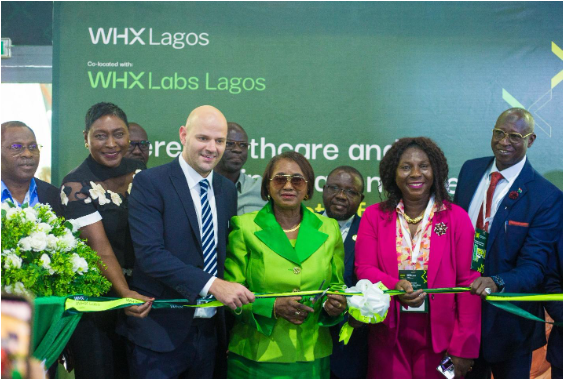Nigeria Strengthens Fight Against Antimicrobial Resistance

The Federal Government says it is taking steps to tackle Antimicrobial Resistance (AMR) to guard against its impact on infection treatment and outbreak response.
Dr Jide Idris, Director-General of the Nigeria Centre for Disease Control and Prevention (NCDC), stated this during a workshop in Lagos.
The workshop, titled ‘Lessons Learned for Antimicrobial Resistance (LL4AMR) From Previous International Science Panels’, was organised by the Nigerian Academy of Science and the U.S. National Academy of Medicine.
In September 2024, the UN General Assembly urged Quadripartite organisations to establish an independent panel against AMR by 2025.
The aim is to “facilitate the generation and use of multi-sectoral, scientific evidence to support Member States’ efforts to combat antimicrobial resistance without duplicating ongoing efforts”.
The World Health Organisation (WHO) says AMR occurs when bacteria, viruses, fungi and parasites no longer respond to antimicrobial medicines.
As a result, antibiotics and other antimicrobial medicines become ineffective, making infections difficult or impossible to treat, increasing the risk of severe illness and death.
Idris said Nigeria had made strides in building its AMR response through a One Health National Action Plan and a growing AMR Surveillance System.
He added the country had also expanded Antimicrobial Stewardship, Infection Prevention and Control (IPC), and WASH Intervention programmes.
Nigeria, he said, remains committed to hosting the 2026 High-Level Ministerial Conference on AMR.
“We continue to build a system that integrates science, policy, and practice. But we cannot do this alone,” he warned.
He said the proposed panel would complement national efforts by providing independent, globally curated evidence to support strategies, set priorities, and strengthen cross-sectoral policies.
Idris noted the panel would enhance Nigeria’s engagement with international platforms and amplify regional leadership.
“Our journey has taught us that success depends on not only generating evidence but translating it into policies tailored to our unique contexts,” he said.
The NCDC Director-General decried the devastating impact of AMR on public health efforts.
“As the National Public Health Institute, we have seen how AMR compromises our ability to treat infections, protect patients, and respond effectively to outbreaks.
“AMR is no longer an emerging threat; it is a daily reality requiring bold, science-driven, and multisectoral action.
“This is why today’s conversation is so important. The proposal to establish an Independent Panel on Evidence for Action Against AMR represents a turning point.
“It is an opportunity to bridge the gap between what we know and what we do,” Idris stated.
He said it offers a unique chance to make science the foundation for global and national policymaking.
Evidence, Idris emphasised, must not only be generated but trusted, inclusive, and acted upon.
He urged the meeting to mark not just a dialogue of ideas but the beginning of a legacy of evidence-driven solutions.
Nigeria Strengthens Fight Against Antimicrobial Resistance is first published on The Whistler Newspaper





